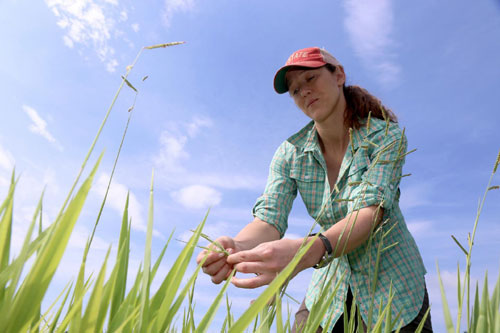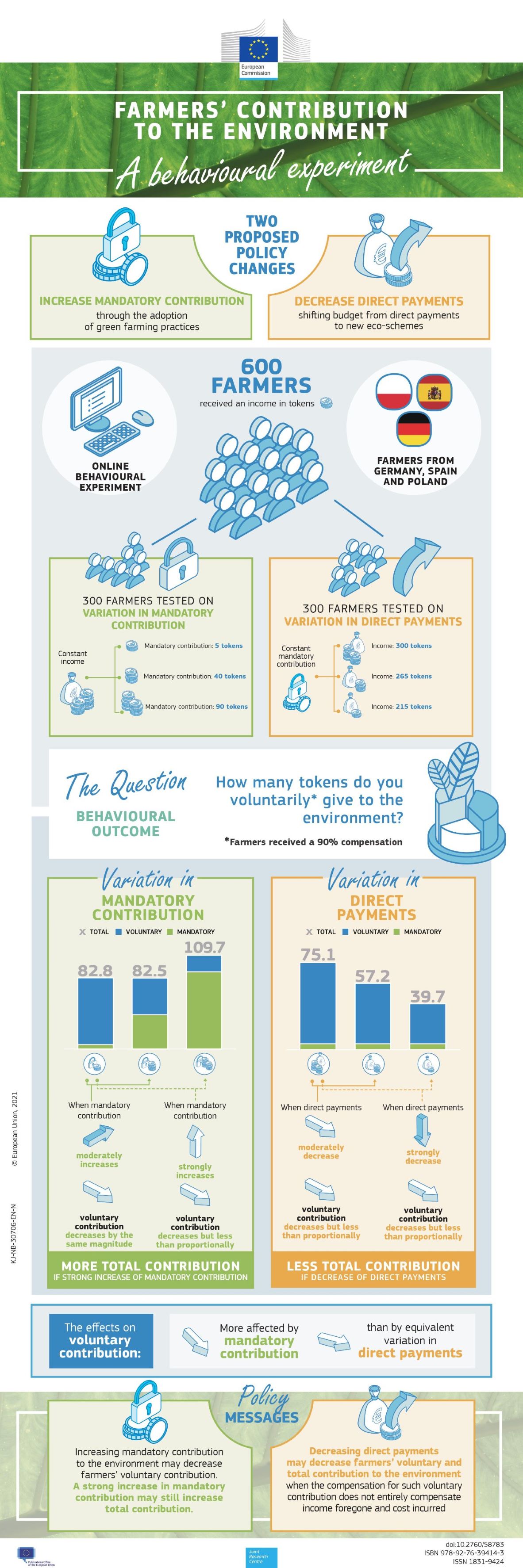



New study shows that setting ambitious green farming standards can lead to higher environmental benefits
A study published by the Joint Research Centre of the European Commission shows how the choices farmers make to adopt voluntary green practices are affected by how much they are already obliged to contribute to the environment..jpeg)
The behavioural science study finds that the more mandatory requirements placed on farmers, the less likely they are to make additional voluntary contributions. However, if the mandatory requirements are ambitious enough, the positive impact on the environment more than offsets the drop in voluntary actions.
In the EU, farmers receive support to safeguard their activities and promote food security and sustainable farming, through the common agricultural policy (CAP). This includes financial support to farmers who adopt or maintain farming practices that help meet environmental and climate goals.
The JRC study explores the conditions under which farmers are more or less likely to decide to adopt voluntary environmentally friendly farming practices in addition to mandatory ones. For voluntary practices, the higher the level of direct payments farmers receive, the more likely they are to take up such green activities.
Behavioural science is a relatively new approach to understanding agricultural policy in the EU, which has traditionally relied on modelling and other analysis to pre-test the impact of different policy options.
These new behavioural insights help enhance the knowledge base, which in turn helps design policies that maximise the impact of the payments they receive on the positive contribution of farmers to the environment. For example, in the provisional political agreement on the new CAP, EU Member States are asked to prepare strategic plans to implement the policy over the next five years. Behavioural insights are one tool that can help them do that effectively.

How did we run the behavioural experiment?
To run the experiment, 600 farmers from across three EU countries were split into two groups:
- Group 1 where the aim was to assess the impact of different levels of mandatory contributions on the voluntary contributions made to the environment, and
- Group 2, where the aim was to assess the impact of different levels of income through direct payments.
For the first group, farmers were each given a constant income (in the form of tokens) from which they were instructed to contribute either 5, 40 or 90 tokens as a "mandatory environmental contribution". They were then asked how many additional tokens they would voluntarily contribute to the environment, for which they received a 90% compensation.
The farmers obliged to contribute 40 tokens tended to contribute less on a voluntary basis than those obliged to contribute only 5 tokens. But interestingly, their overall contribution ended up about the same.
For those farmers obliged to contribute 90 tokens, their voluntary contribution decreased further, but not at the same magnitude. This suggests that a positive effect on the environment can be achieved by a combination of mandatory and voluntary contributions but also that high mandatory contributions will lead to a higher total contribution to the environment.
In the second group, farmers received 300, 265 or 215 tokens as their "income" and were told that variations were due to changes in their income support payment. They were also then asked how many tokens they would contribute to the environment. Those starting with more tokens were likely to make higher voluntary contributions, suggesting that when farmers feel they receive high direct payments they are also willing to contribute more to the environment.



